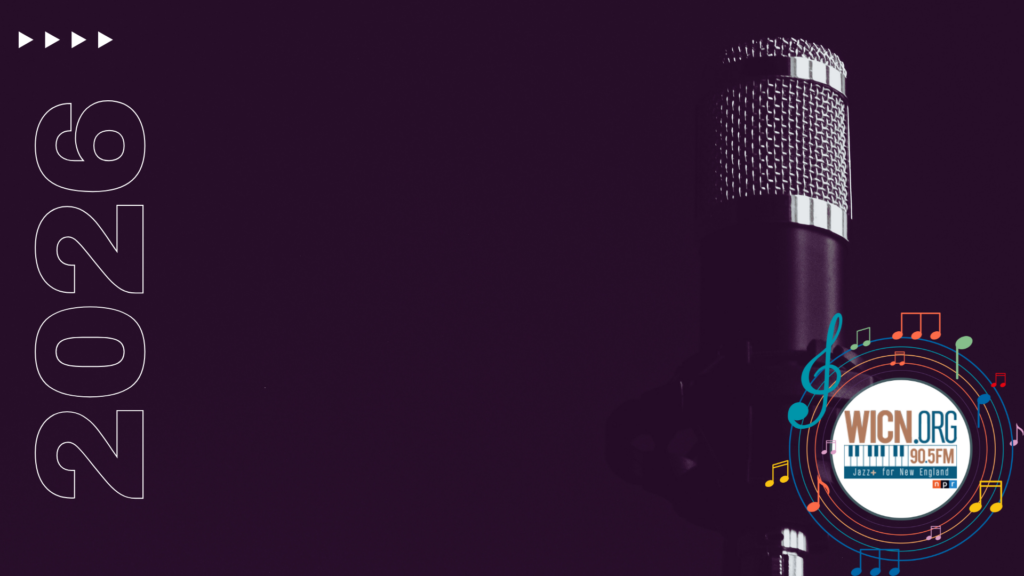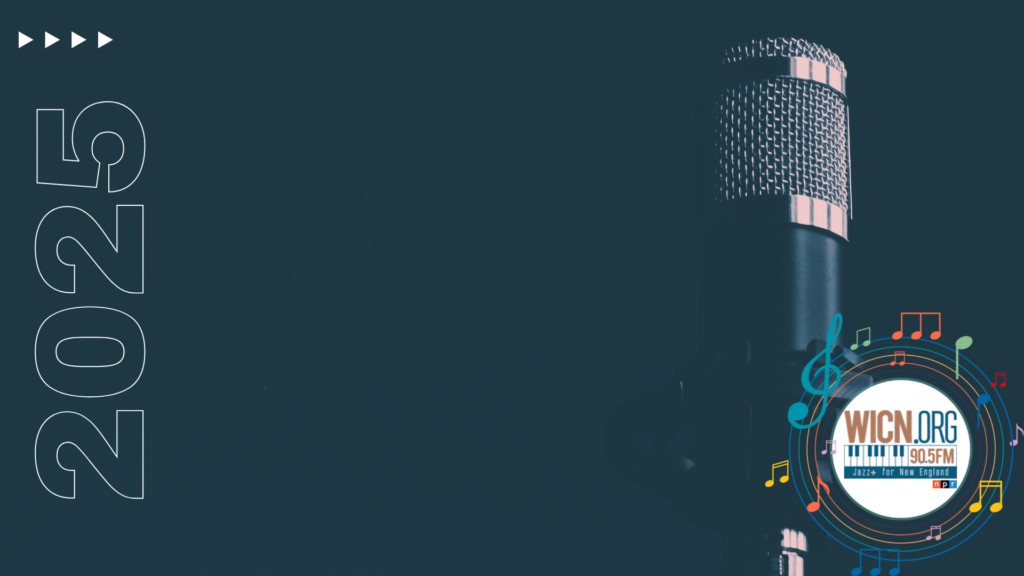WICN Artist of the Month, July 2023: Ahmad Jamal
Written by Doug Hall on July 3, 2023
In the 1940s, at a time when Bebop was ascending in popularity as the new direction in modern jazz, with its flurry of notes, frantically fast tempo and extended solos, a distinctive and original artist and pianist was turning in another direction.
Ahmad Jamal, with his stately, economic, and classically-styled approach to jazz, also embracing silence that he would express as “spaces” in music, was to establish a counter-interpretation to jazz. He was seen as a “giant” among his peers, which included Miles Davis, John Coltrane, and Dizzy Gillespie. The renowned jazz critic Stanley Crouch wrote that Bebop’s founding father, Charlie Parker, was the only musician “more important to the development of fresh form in jazz than Ahmad Jamal.”
As a child prodigy, studying piano at the age of 4, Jamal was deeply immersed in classical training, studying, and listening to the legendary European masters. As Jamal stated in a 2001 New York Times interview, “we didn’t separate the two schools – we studied Bach and Ellington, Mozart and Art Tatum. When you start at 3, what you hear you play. I heard all these things.”
Only a handful of jazz musicians have developed the foundation to begin composing as a pre-teen, but Jamal was exceptionally gifted. “By the age of 10, Jamal had already begun composing music, inspired by the works of early French classical composers Maurice Ravel and Claude Debussy. His professional career was launched at the age of 14. He would spend his time performing in nightclubs, while doing schoolwork in between sets.”
Early in his career, Jamal would become a part of a legacy of developmentally crucial jazz musicians from the Hill District of Pittsburgh, now an historic part of jazz’s storyline. “Up on the Hill,” the mixed-race post WWI urban neighborhood from the 1920s to ‘50s, was referred to as “Little Harlem,” giving birth to a who’s who of formidable jazz musicians, playing in jazz clubs like the Crawford Grill. Earl ‘Fatha’ Hines, Billy Eckstine, Erroll Garner, Billy Strayhorn, Ray Brown, Kenny Clarke, Mary Lou Williams, Art Blakey, and Stanley Turrentine were all part of this epicenter of jazz greats. In the jazz documentary, We Knew What We Had: The Greatest Jazz Story Never Told, Jamal expressed, “my foundation I got in Pittsburgh, it was responsible for my growth.” In this same documentary, he would also identify his admiration for jazz pianist Erroll Garner, “He was an orchestra in itself – perhaps my greatest influence.”
Rather than use the word jazz, Jamal preferred to refer to the genre as “American classical” music. Jamal was well-versed in European classical music, and noted the difference between the two approaches. “With European classical music, the performer is expected to interpret the music, faithfully following the score in the hopes of reflecting the composer’s intention. With American classical music, the goal is to reinterpret the music, to find something the original composer never imagined.”
Extraordinarily musically advanced for his age, by 20 he was already ahead of his peers in foundational approaches to jazz music, and his study of classical music – particularly arrangements. As Jamal expressed in his own words, “my arrangement of Poinciana is a classic that still is imitated and emulated every day.” As further elaborated by DownBeat’s J.D. Considine, “Arranging has always been one of Jamal’s strong suits. In particular, he’s especially adept at two devices that figure heavily in European classical music: constructing a narrative structure out of variation on a theme and using shifting dynamics to pull the most from a melody.”
In a February ’23 interview with DownBeat magazine, Jamal spoke of being selective when choosing which popular songs to reinterpret in a jazz style, citing Coltrane as an example. “We interpreted the works beyond the concepts of the writers,” he said. “The thing is, we pick and choose [material].” He mentions as an example John Coltrane’s version of My Favorite Things, the recording that first brought broad attention to the saxophonist’s solo career. “‘My Favorite Things is how you know John Coltrane,” he said. “But why did John Coltrane pick that? Because he found something in there that no one else did.”
Jamal’s own intimately unique take on crooner Bing Crosby’s “stagey, string-drenched” popular song Poinciana, like Coltrane’s version of My Favorite Things, would become a signature composition and bring significant airplay, sales, and promotional attention to the artist. As further analyzed by DownBeat’s Considine, “he didn’t just match a melody to a beat, as his reinterpretation turns a song that was mostly refrain into a mini-suite, driven by eighth-note afterbeats and Israel Crosby’s insistently tuneful bass.”
Jamal’s influence and admirers spread far and wide in jazz. Of his contemporaries, Miles Davis found enormous inspiration in his work. As quoted in his 1989 autobiography, Miles, the legendary trumpeter said that Jamal “knocked me out with his concept of space, his lightness of touch, his understatement, and the way he phrases notes and chords and passages.” Miles went on to record Jamal’s New Rhumba on his classic 1957 recording Miles Ahead.
His stylistic sparsity and chordal arrangements have influenced both jazz pianists Herbie Hancock (Jamal would popularize a reinterpretation of Hancock’s Dolphin Dance), and also particularly Keith Jarrett, who later covered Poinciana, and stated in DownBeat’s obituary tribute (April 2023), “that upon hearing it he thought, ‘This is swinging more than anything I’ve been listening to, but they’re doing less. What’s the secret here?’” A lengthy list of professional admirers includes legendary pianists and composers McCoy Tyner, Chick Corea, Kenny Barron, and a host of other current influential jazz artists.
His contemporary admirers include, particularly, pianist Ethan Iverson, a founding member of the exceptionally popular trio The Bad Plus, who reflected, “All of his pieces are theatrical and contained. In some ways the Bad Plus was an extension of his classic trio.”
As with many of his contemporaries in jazz in the early and mid-’50s, Jamal led various trios and experimented with his choice of musicians before settling into a trio lineup with bassist Israel Crosby and drummer Vernel Fournier. Jamal’s breakthrough to mainstream audiences would occur on a now internationally famous live recording at a Chicago nightclub in 1958 at the Pershing Hotel. Ahmad Jamal at the Pershing: But Not For Me recorded with Crosby and Fournier spent more than two years on the Billboard Top 200 album chart, selling more than 1 million copies. At a time when jazz was losing its audience, with record sales declining against advancing popular music, this was an all-but-unheard-of stretch for a jazz album. Jamal is credited in bringing a resurgent interest back to jazz music with this historic release, also catapulting him to superstardom. “Just as jazz had begun to fade in favor of rock ‘n’ roll, Jamal had single handedly revived the art form.”
Bad Plus jazz leader and pianist Iverson said of the title track, “The classic Jamal Trio with Crosby and Fournier is one of the greatest groups of all time. But Not For Me is a perfect three minutes. Literally perfect. There’s nothing better.”
As is often the nature of jazz and its accompanying spontaneity of expression for artists performing “in the moment,” live recordings captured Mr. Jamal at his nimblest, and many jazz connoisseurs rank such albums as Freeflight (1971), recorded at the Montreux Jazz Festival, and Chicago Revisited: Live at Joe Segal’s Jazz Showcase (1993) among his best. For many jazz critics, Jamal’s live albums best translated his dynamism, subtle interpretations, and innovative drive as bandleader, and in his own words, “I’m still evolving, whenever I sit down at the piano.”
Recognized as a seminal live release for Jamal, Freeflight in particular established the powerful synergy and intensity that is intimate to Jamal’s trio with performing personnel Jamil Nasser on bass and Frank Gant on drums. As reviewed by jazz site Burning Ambulance, Jamal’s “grand piano rings like a rack of tuned bells, and the Fender Rhodes is ultra-clean. Nasser’s bass has a pleasingly woody boom, lacking the overdriven rubber-band sound that engineers frequently saddled upright bassists with in the ’70s. Gant’s drums are mixed lower than they probably sounded on the night, but his attack is sharp and precise, every strike clearly audible.”
As has been recently the case, archived or so-called “lost” recordings of jazz legends such as Coltrane and Mingus have been found. Just recently, a groundbreaking and highly esteemed set of live recordings from Jamal were accessed by jazz record producer Zev Feldman, on his imprint label Jazz Detective. Recorded between 1963 and 1966, the material on the first two volumes (a third, covering 1966–’68, is forthcoming) captures Jamal in his creative and commercial prime. “I’ve known about these recordings of Ahmad Jamal probably for about 10 or 11 years now,” explained producer Feldman (having gotten to know the original owners of the Seattle landmark jazz club), which then became companion double sets Emerald City Nights: Live at the Penthouse (1963-1964), and Emerald City Nights: Live at the Penthouse (1965-1966) “taking on a rather folklorish, must-have status”. As reviewed by All About Jazz critic Mike Jurkovic, “Stunning on every possible sensory level—audio, graphics, liner notes, performance—both sets – simultaneously captures Jamal and his cohorts in hot performance mode and sets them free to be heard like all greats should be: At the top of their game.”
From a more current standpoint, the composer and bandleader has been heavily sampled across genres of music including hip hop, his work featured on songs by Jay-Z, Common, Nas and De La Soul.
Regarding the garnered professional respect that surrounds Jamal, a Twitter message left on the day of his passing by Christian McBride, (jazz bassist and composer, artistic director of the Newport Jazz Festival and multiple band leader), is revealing, “Ahmad Jamal was someone who always left me completely star struck. I’ve stood in a room with him numerous times and never had the guts to say hello. His vibe was just too regal.”
His professional awards include being named Jazz Master in 1994 by the National Endowment for the Arts and receiving a Lifetime Achievement Grammy in 2017 and induction into France’s Order of Arts and Letters.
Jamal was always reflective and spiritual about his outlook on his musical gift and the resulting life’s journey, considering it a “blessing” to be still creating well into his 80s, and calling his life a continual “discovery.” Not long after turning 92, Mr. Jamal had a phone interview with the New York Times, in 2022, a year before his passing, stating “I’m still evolving, whenever I sit down at the piano, I still come up with some fresh ideas.”

